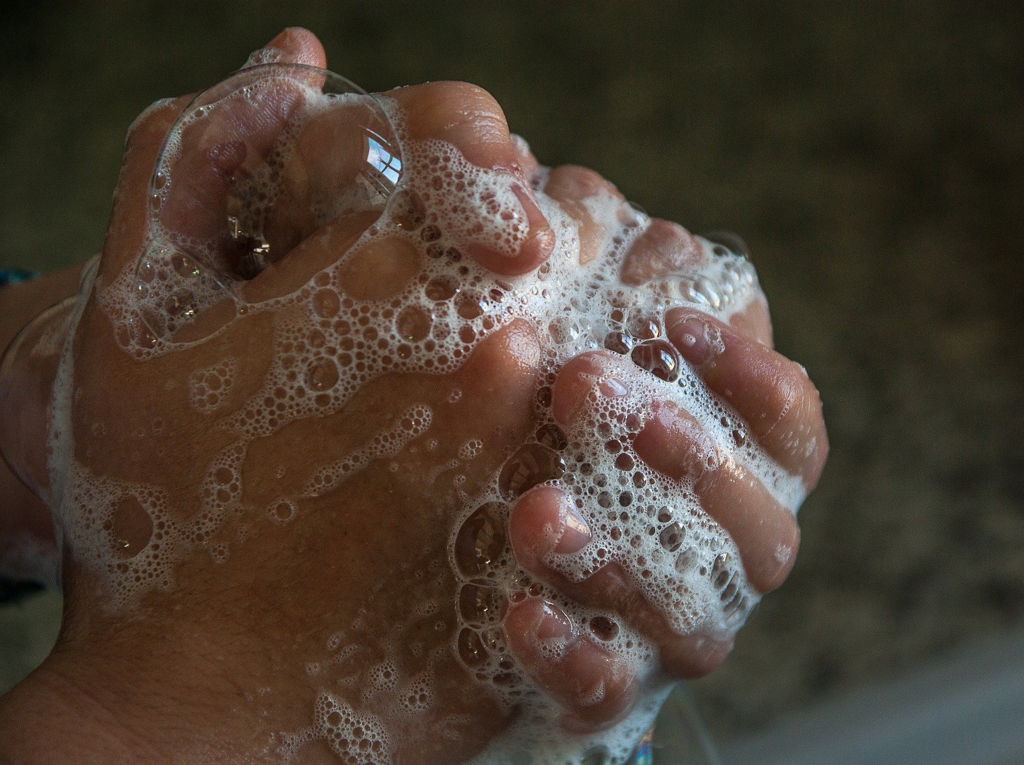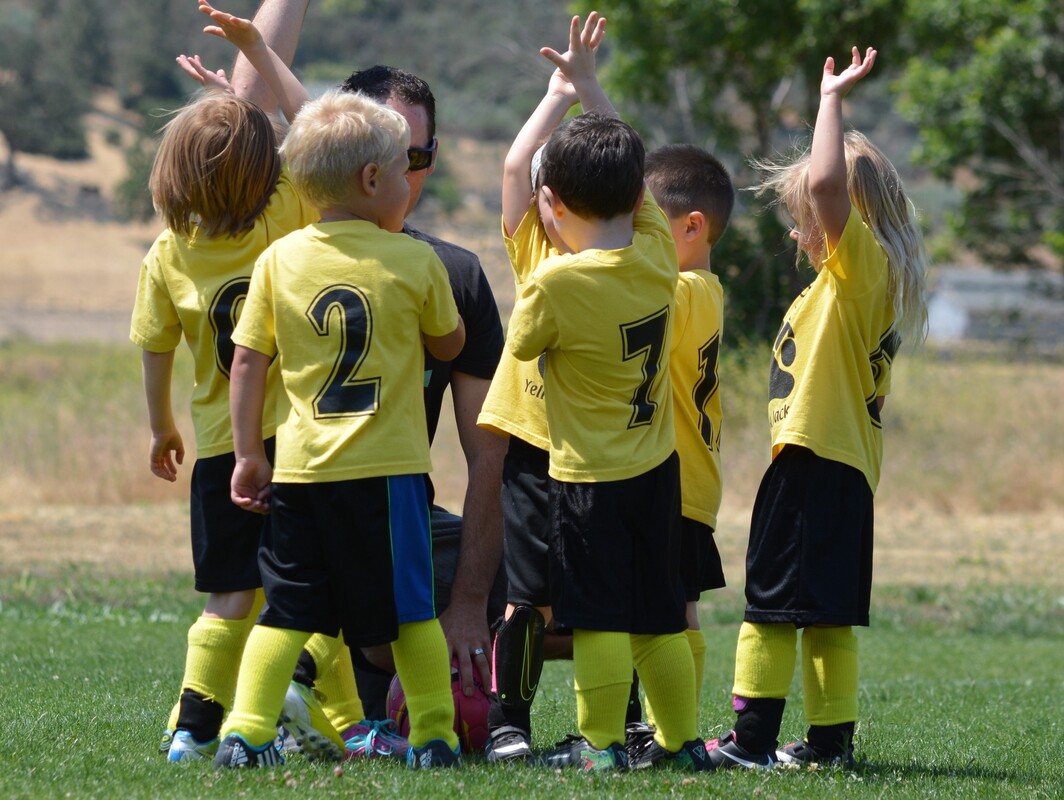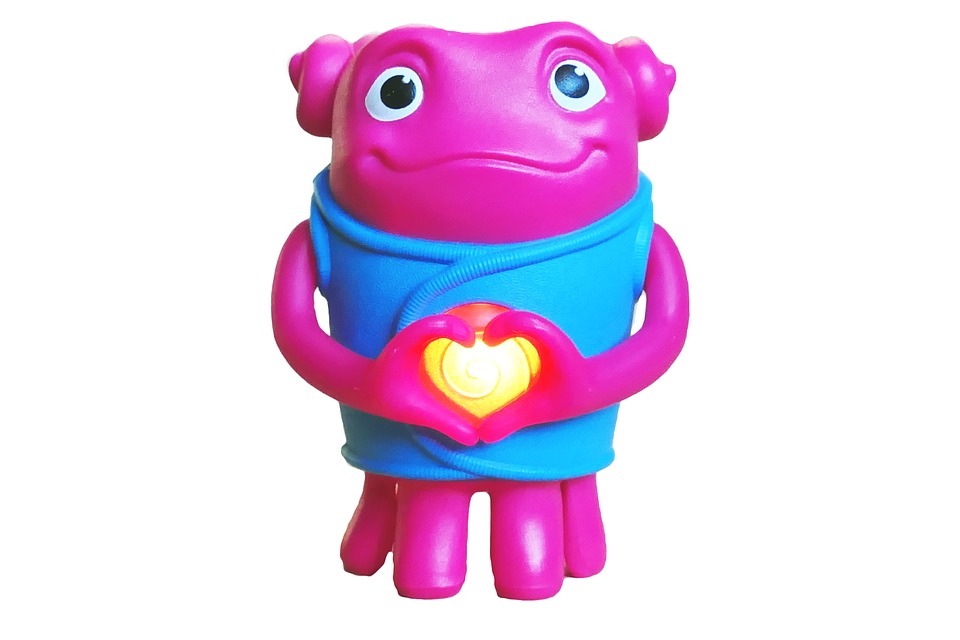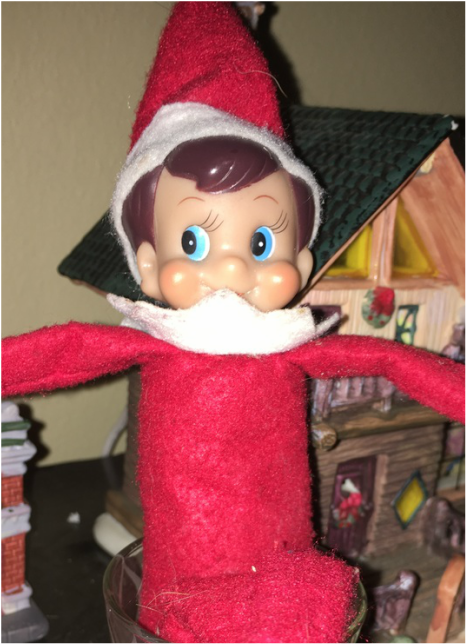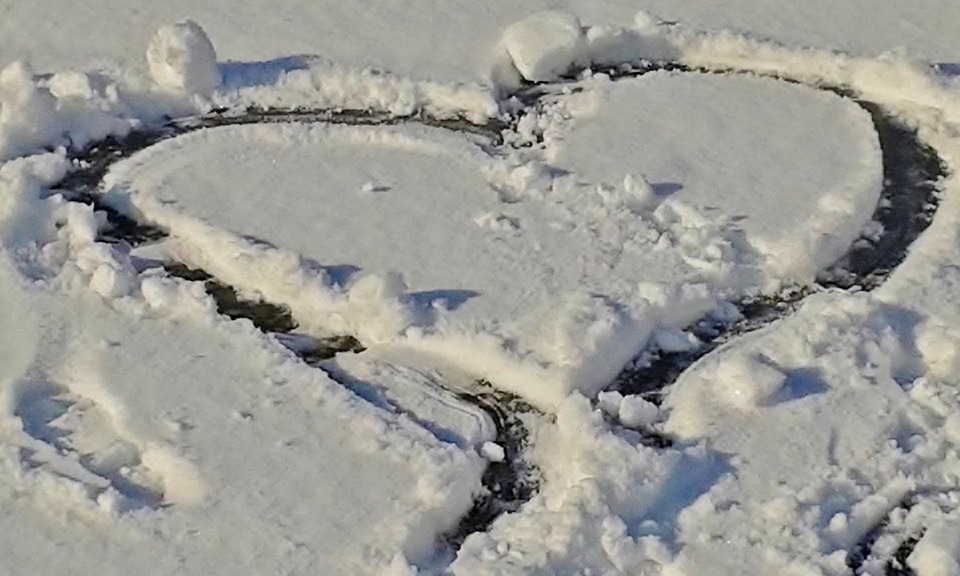Changing Perspectives Blog |
|
Life sure is different these days. If you are struggling with the challenges of the current Covid-19 Pandemic and the resulting quarantine, you may find the list of podcast episodes below quite useful.
Episodes include strategies to help your children cope with their anxieties around the changes, suggestions to find a way to still focus on your relationship despite being in quarantine, how to transition to working from home, and techniques to help make homeschooling more effective and less of a challenge. Top Covid-19/Quarantine Podcast Episodes Episode 58: Managing Children's Anxieties Around COVID19 Episode 59: Stay At Home Date Ideas: A Pint Sized Perspective Episode 60: Working From Home: Navigating The New Normal Episode 61: How To Survive Quarantine As A Couple Episode 63: Schooling At Home: One Family's Perspective
0 Comments
Everywhere we look right now we hear and see the same few words over and over again.
For many of us, this constant news cycle can be overwhelming, tapping into our already somewhat heightened levels of anxiety. For those of us that are parents, we have an added layer of concern: how do we explain the current state of affairs to our children and provide them some sense of reassurance? While there is no magic elixir, magic wand, or secret rule book, there are a few key strategies that just might help us to decrease our children’s current worries and restore a sense of hope. 1. Be Honest As with most things, children know more than we think they do and they crave honest information. As much as I want to shelter my children from hearing about the potential bad things that could happen, now that they are in school and in sports, this is simply not a reliable option. They can potentially overhear information from an adult or directly from another child in a number of locations. When parents make the decision to provide their children with honest information, there is better control over what and how specific information is shared with their children. 2. Watch What You Say On the flip side, be mindful about what you say around children, not just around your own children, but when you are out in public. You don’t want to be that person who exposes another child to information their parents had not yet shared. 3. Consider Development Children’s emotional and cognitive capacities develop significantly throughout their childhood. Before sharing details with them, take their developmental stage into consideration. A 12 year old will want and need more specific and detailed information than a 7 year old may need. Avoid going into too much detail or overwhelming them with details. Let them guide you on how much information they need. 4. Be a Role Model Let’s face it, children learn a lot from watching their parents: the good, the bad and the ugly. Show your children that feelings like anger and frustration are normal. If you are angry, name it. Be sure to not only show your child that it is normal to feel emotions but also demonstrate acceptable ways for them to express those emotions. Avoid holding it all in and expressing it only when the children are not around. Let them in on the realness of feelings. You will be providing them a solid model for how to handle and manage life’s biggest challenges to come. 5. Reassure. Reassure. Reassure. Children need to feel safe and the adults in their lives are the ones who are tasked with that monumental responsibility. I am not advocating for you to tell your children that nothing bad will happen to them or near them ever as that would be a lie. You cannot predict the future. You can, however, point out that good stuff happens far more often than the bad stuff. Remind children of all the people and systems in place to keep them safe and all the healthy people around them. Reassure them that you would never knowingly put them in a dangerous situations. Highlight safety measures that are in place in they express fear over attending a certain event. Repeat as many times as necessary. When you think you’ve said it all enough, say it one more time. 6. Limit Media Television news, social media accounts and newspapers now provide non-stop, around the clock coverage of the virus outbreak. Pictures, video, audio clips; it’s all out there and it can quickly become too much for children. Be mindful of what children may be exposed to and consider whether it is necessary. I recall hearing accounts from 9/11 that many children interpreted the frequent replay of the plane hitting the tower as multiple planes hitting multiple buildings day after day. Even if you think your children aren’t watching the news with you or don’t see the headlines on the newspaper, think about what they may overhear from the next room or what they may see when the newspaper is left casually on a kitchen table. 7. Create an Open Dialogue Children need time to process things. It is not unusual for children to need days or even weeks to develop questions or be able to express their thoughts on difficult topics. Send your child the message that you can always find time to talk with them. Many parents have success by carving out time each night around bedtime for an opportunity for children to share their experiences, thoughts, feelings and ask questions. Some parents schedule weekly one-on-one parent/child dates at a coffee shop or fast food restaurant to connect. These conversations tend to be better received when they focus on one child at a time, rather than as a family dialogue with multiple children of various developmental stages. 8. Point Out the Positive Despite what we see on a daily basis, there are lots and lots of great things that happen locally, nationally and internationally. Seek out the good stuff and share it often with your children. Local newspapers can often be a more positive source of news, particularly for children. Highlighting the positives can also go a long way to helping children feel safe. No amount of the good stuff is too much! 9. Monitor Behavioral Changes Keep a watchful eye on your child’s behavior. Changes in sleeping and eating patterns may indicate that your child is having a hard time processing some events and information. Changes such as suddenly wetting the bed again or asking to sleep in your bed could be a normal response to stressful information. Be careful not to shame your child about changes like these. Rather, give them some time, continue to provide reassurance and keep a watchful eye. If you are concerned, reach out for support. Your child’s school, their pediatrician and local child therapists are all great resources. 
When I became a parent nearly 14 years ago, I knew absolutely nothing about parenting. I’d read all the baby books, perused all the baby websites, signed up for the weekly emails about my baby’s development and yet still was woefully under-prepared for what it would take to be a mother. Not much has changed since then. I still feel inadequate most days as I stumble my way through the maze of parenthood. As my oldest approaches his 14th birthday, I find myself amazed by how much he has changed in just one year. Facebook Memories and Timehop remind me almost daily that every day he steps closer and closer to adulthood, slipping further and further away from childhood. Blinking back tears, I look at him today, amazed at the young man he has become and I am humbled by just how much he has taught me during his 13th year: 1. Hold on loosely, but don’t let go It turns out that 80’s bands gave us more than just good music — they gave us solid advice to live by as parents. My 13 year old has taught me this year that while I need to hold onto him and continue to guide him, I can’t cling too tightly. He needs space to find himself and that means space to make his own mistakes. If I hold too tightly, he’s never going to learn how to make it as an adult. 2. Hit the Whoa Every year there is some new “dance” that takes over on Tik Tok and You Tube. If you’re lucky, your 13 year old will tell you about it, teach you it, and then tolerate you when you are in public and try to show off your skills. I’m still not exactly sure what the Whoa actually is though… 3. Be honest with friends Middle school has been rough for me as a parent this past year, as it turns out that middle school drama doesn’t really stop when you leave middle school. It all rears its ugly head again when you become a middle school parent. During moments this past year when my 13 year old caught wind of such drama, he was always very matter of fact and eager to offer advice to me. He always encouraged me to “just talk to them” and be honest. His message — if they are your friends, they’ll understand. 4. Hard work pays off This past year has seen my 13 year old face a significant arm injury, requiring lots of visits to specialists for testing, physical therapy, and sports restrictions. Pain, daily ice massages on his elbow, strengthening and stretching workout and playing baseball with his team while not really be able to do anything more than swing a bat sometimes would be a lot for any adult to manage, let alone a teenager. But he persevered and was able to finish the final few games of the season without any restrictions. I think most adults, myself included, would have given up. 5. Don’t sweat the small stuff You can learn a lot from how 13 year old boys handle conflict. While they have their share of disagreements with their friends, get hurt, and have drama, they are quick to let it go and move on. They don’t sweat the small stuff. They let it roll of their backs. We could benefit from doing more of the same as adults. 6. Teen music is great for working out I think every generation has a “I can’t believe what those kids are listenting to for music these days” moment. But, it turns out, if you are open minded and let them play their music for you, you just may find yourself asking them to add some of those songs to your workout play list. The music those crazy kids are listening to these days is great for cardio and weights at the gym! 7. Sleepovers are the worst I thought sleepovers would get better as they got older. They don’t. Although they can regulate themselves and then recover a bit quicker than my 10 year old when it comes to going to sleep at a normal time, now that they are teenagers the responsibility of hosting becomes so much more stressful for us as parents. Are other kids bringing in vapes, drugs, or alcohol? Are they going to try to sneak out? Are they doing something on social media that might hurt other kid’s feelings? Nope. Sleepovers for 13 year olds still suck. 8. Disney is magical, even for teenagers Our family has always loved taking trips to Walt Disney World. Each time we go, we wonder “Is this it? Are they too old for the magic?” It turns out that 13 is not too old! As we were walking out of Epcot park at the end of an evening in Disney last month, my 13 year old leaned over to me and said, “Mom, even though we are older now. Doing this is still a lot of fun.” I tried to give him a hug as tears started forming in my eyes but that was quickly shot down as hugs are a bit of a rare commodity for some teens. 9. Hugs are the greatest gift When my son was little, he was a great hugger and snuggler. Now, hugs are much harder to come by. But, when I do get a surprise hug hello or thank-you or as a comfort, it is one of the greatest gifts ever. I wish I hadn’t taken all those toddler hugs for granted, I never knew how much I would miss them. 10. Teenagers can navigate Earlier this month we went tubing down a river in New Hampshire with a large group of families. It was 5 mile river float and we let the group of teenage boys float off together ahead of the adults. Many of us worried that they wouldn’t be aware enough to see the tiny sign that would indicate it was time for them to get off the river. When we rounded the bend and saw the beach with the sign, the teens were nowhere in sight. I immediately wrote them off, assuming they missed it but I could not have been more wrong. Not only had they seen it, but they had returned their floats to the rental place and were waiting together for us near our cars. 11. Car rides are special Joining a travel sports team has meant lots of long car rides over the past year and although those often meant waking up early and staring at headlights for 2+ hours, they also mean that I got to ride side by side with my 13 year old, trapped in a moving box. Just us. Something special often happens on those long car rides. The air shifts just a bit and he begins to open up about his life, his friends, his feelings, his fears. I love those car rides now. 12. Teens have instincts too One of the biggest lesson I’ve learned from my 13 year old is that just because we, as adults, are older, doesn’t necessarily mean we are wiser. Teenagers are humans too and have some gut instincts that sometimes are spot on. It’s important to give them a chance to use their voice and share their instincts. Being able to tap into that insight will help them immensely in their adulthood. 13. We need more cereal One of the primary sources of fuel for 13 year old boys is cereal. It could be a meal for breakfast, lunch, dinner, or a snack and teenagers eat it by the boatload. My 13 year old has taught me to assume that we always need more cereal. If you see me at any store these days, I can guarantee I have some cereal and milk in my cart. There are whole sections of bookstores devoted to the topic of how to parent a teenager. You could read every single one of those books and still feel unsure of yourself as you navigate the waters of parenting a teenager. But, I’m learning that the best way to parent them is to see them, hear them, and accept them for who they are right now…and feed them lots and lots of cereal.
Recently, video surfaced of a physical fight that broke out between parents at a baseball game for 7-year-old children in Colorado. The cause of the fighting? Parents of the players disagreed with the 13-year-old umpire’s decisions. As video of the incident circulated over social media and even national news outlets, many people appear to be shocked that adults would display such terrible (and illegal) behavior over kids playing a youth sport.
I’m not shocked. Not even a little. As the parent of a 13-year-old baseball player, I have spent years watching the antics of parents at youth sporting events. Although I’ve never seen a full on brawl between the adults, I have seen parents, coaches, and even grandparents be ejected from games for heckling and arguing with child and volunteer umpires and referees. I’ve seen adults have to step between coaches and parents before fists started to fly. I’ve seen people’s cars get keyed by other parents over disputes that happened between their kids on the field. I’ve seen parents encourage their 8-year-old child to “get back” at another player by trying to deliberately hurt them. I’ve seen friendships and entire youth sports volunteer boards be torn apart because of disagreements about a game. So, when I see video of parents resorting to violence, I’m not even a little surprised. Bad behavior from adults is one of the primary reasons why my son will never ump a baseball game without one of his parents there — just in case the adults lose sight of the fact that they should be acting like adults. What is the cause of such behavior from adults? Perhaps it is all the stuff lurking beneath the surface. Maybe it’s the murmurs on the sidelines, the passive aggressive posts on social media, or the tendency of adults to try to pull the kids into their adult drama that creates this pressure cooker environment. Eventually all of this build-up leads to total chaos from the adults involved with youth sports. In short, adults simply are forgetting to be adults. Just last week while I cheered on my 13-year-old son’s flag football team, the mom standing beside me called the coach (my husband) the “R” word. Yes, the “R” word. Her friends standing with her quickly leaned in towards her, whispering and motioning towards me, clearly encouraging her to be quiet as the coach’s wife was standing within ear shot. “Oh I know. I don’t care,” she said in response. Nice. Her son is good friends with my son and she and I are Facebook “friends.” Had I not been able to have the wherewithal to take some deep breaths, find a way to have compassion for her lack of understanding, and excuse her poor choice of words, people would have seen a very ugly version of myself. A few days later, I sat in a restaurant for a birthday dinner with friends and suddenly the party went to shambles as another adult approached our table and began arguing with one of the party-goers. Restaurant patrons turned to stare, members of our party left abruptly, and I wouldn't have been surprised if fists had started to fly. What were they arguing about? What else? Youth sports. In a restaurant. At a dinner party. The truth of the matter is, I’ve been in the shoes of these adults that lose their cool. I’ve stood on the sidelines and wondered why my kids weren’t playing as much as others. I’ve seen coaches favor their own kids and restrict kids from playing as a way to get back at them for something unrelated to the game. I’ve been frustrated. I’ve asked questions. I’ve had strong feelings towards coaches and other parents. I’ve wanted to approach other parents and coaches in public and tell them what I really think of them. But, I don’t. I’ve never stood on the sidelines and loudly called someone the R word. I’ve never been kicked out of the stands. I’ve never resorted to physical violence. It’s hard in times like these to not just pull my kids out of every sport and move on with our life. But, the kids love it. At the end of the day, they don’t care much about bad calls or playing time or winning and losing. They don’t care about taking sides in a town-wide battle between parents who disagree about a selection of a coach. They just want to have fun. They just want to be kids. If we look hard, beyond the headlines of brawls at youth sporting events, beyond the passive aggressive social media posts, beyond the sideline comments, we can still see the heart of youth sports. Despite all the drama perpetuated by parents, at the core, youth sports are still a magical thing. During this same week as the baseball game brawl, sideline “R” word, and the restaurant argument, I also bore witness to some pretty amazing moments. An 11-year-old fell into the end zone to catch a game-winning touchdown pass and ran over to the stands, huge smile on his face, shouting “Mom!!!! Did you see that??? I caught it!! We won!!” It was pure joy for that little boy, his mother, and his entire team. Even the adults cheering for the other team were smiling back at the boy. I also witnessed a 13-year-old baseball player who had been having strike out after strike out the past few weeks finally hit a bomb to left field that drew every parent and kid to their feet and resulted in another huge smile from a child, his parents, his teammates, and the adults around him. I read a story about a baseball team, umpire, and coaches who decided to let a pitcher with a broken leg enter an inning for one batter to be able to say he played in a very important game. My own son, who has been restricted from throwing for the past 8 months due to an injury, finally got the clearance to start a return to throwing program and was able to warm up the right fielder before this weekend’s games. A small step, but huge for him. Even the adults around him made note and congratulated him. They knew how big of a deal it was for him and for his team that he was able to begin returning to the game he loves. I witnessed friendships being formed and strengthened on the sidelines between parents. I witnessed volunteers giving up their nights to run scoreboards for championship little league games and announce players names over the speaker. I witnessed childhood happening all around me and it was truly spectacular. These moments, the ones filled with pure joy and heart, not the moments filled with drama, are the ones that define youth sports. These are the moments that deserve to be circulated on social media and the evening news. These are the stories that matter. These are the stories that prove that we have not lost at youth sports, after all. The magic is still there. Sometimes we just have to look a little harder for it.
Fourteen years ago I was pregnant with my oldest son and I spent all my free moments devouring every baby book I could get my hands on. I bookmarked websites about babies and child development, confident that I would now know where to turn for guidance along every step of my parenting journey. I joined online groups with other mommies to expand my social network and find potential support resources. I prepared and prepared and then prepared some more.
But, all those books and websites failed to tell me something important; something that would make me cry rivers of tears sometimes and would keep me awake some nights. They never told me the reality that I would lose my baby, my toddler, my sweet impressionable elementary school little boy over and over again. I would grieve a million little losses all before he even learns to drive. As I sat and watched my youngest son perform in his annual end of the school year concert yesterday, I was hit with a pang of thick sadness. In that moment, I realized he has only one more year left in his elementary school experience. We are almost at the end of this chapter of his life and the pages are turning super fast. Too fast. Watching him on the stage called my memory back to when my oldest son was on that same stage singing songs about summer vacation and growing up. Where did that time go? Now he’s closer to graduating high school and going to prom than he is to boarding the kindergarten school bus for the first time or holding my hand in public. While I love the young men my boys are becoming, my heart aches for the babies I used to have. Those babies that played with my long hair as I nursed them, fell asleep as I sang them lullabies, and squealed with delight when I would make a funny face at them are no longer here. They are gone. Sure, they are forever lodged in my memories and in online photo albums but I will never see them again, never hold them again, never kiss their sweet heads covered in soft baby hair again. Those toddlers that sat in between me and my husband on Disney World rides, grabbed our hands, looked up at us with nervous anticipation and asked in raspy little voices, “ready mama daddy?” have left our lives forever. The bright eyed and naive first and second graders that bounded off the bus each day after school, eager to show us their drawings and asking to snuggle with us while watching a cartoon don’t live with me anymore. Those babies. Those toddlers. Those young school children. Gone. None of the baby books or websites or mommy groups told me about these losses. No one prepared me for how many times, like yesterday’s concert, the realization of the little boys I no longer had would hit me like a ton of bricks out of nowhere. No one gave me a heads up for the real pain I would feel when I realize they are forever changed and the former versions of them no longer exist. Don’t get me wrong. I love who my boys are now. There are so many amazing moments that fill me with joy as I parent my teen and my tween; moments that make me think that these versions of them are my favorite. Lurking at the back of my mind, however, is the knowledge that these versions of them too will fade away, and I will mourn their loss again. As I watched my oldest son on the baseball field and heard about my youngest son making amazing saves as goalie at his lacrosse game today, I made a conscious decision to savor these moments. I took mental snapshots of today’s version of my boys and sat with the realization that these versions are fading before my eyes. As other parents around me complained about the baseball game taking too long or their kids making errors, I leaned into the extra time I got to spend watching them today, choosing to focus on taking in every aspect of my boys and who they are today. Because now I know. There are still a million more little losses to come.
In this episode, Jenni and Josh review their top 10 most painful Disney movie deaths and explore how Disney movies can actually help guide important family discussions about death. Guest host: Associate Producer, Jacob.
In this episode, Jenni and Josh share best practices for navigating the death of a pet and the resulting grief, paying particularly close attention to the needs of grieving children. For more information, visit 10 Tips for Dealing with Pet Loss.
In this episode, Jenni and Josh share best practices for talking to children and teens about wakes and funerals.
A little over one year ago I wrote about The Bridge between childhood and adolescence. Back then, I found myself somewhere in the middle of that bridge, longingly looking back towards the childhood side yet hopeful as I moved apprehensively towards the adolescence side.
Well, it appears my bridge was an express bridge. Here I am; on the other side. You know what's here? Cell phones, mustaches, adam's apples, deep booming voices, attitudes, challenges to limits, and boys who suddenly stand at eye level to me. You know what else is here? Meaningful conversations, random tight hugs, trust, and young men who are mostly kind and learn from their mistakes. Surprisingly, it's sort of nice over here; albeit a bit smelly and messy. On this side of the bridge, I am the parent of a young man, not a young boy, and I get to start taking a step back to let him take some risks on his own. One of the first big events on this side of the bridge happened today: the first day of middle school. Or, as my son's new principal told the parents last week, Day 1 of the 540 school days of his middle school career. 540 In some areas of our life, 540 seems like a lot.
But, when we are talking about time in middle school, 540 days is nothing. It's half the length of time he spent from Kindergarten through 5th grade (1080 school days for math dorks like myself). That period of time went by in the blink of an eye. Surely these next 540 days are going to fly by even quicker! So, how do we, as new middle school parents, survive these next 540 days? Well, I know how I spent the days leading up to Day 1 - letting the middle school version of me find her way to the surface. I color coded binders, folders and schedules, circled rooms on maps, plotted out the best way to organize his backpack, role played some scenarios, and had a nightmare that I was him and I couldn't find my math class on Day 1. I just wanted his middle school experience to not be awful like my own. But, then I stopped myself. (Because, seriously, a nightmare??) Adolescence is messy and painful. It's supposed to be awkward. It's supposed to be emotional. It's supposed to be challenging. Some days are supposed to feel awful. And, aren't middle school and adolescence synonymous? Like most challenging, uncomfortable and unpleasant things in life, when we look back on them later, we can see the good they brought to our lives. They are the catalytic events and change agents that shape our lives. Although I would never want to relive my own 540 days, I do see how they helped to shape me into who I am today. I see how some of the people I still care deeply for today are friends I made during those 540 days. I can see that in those 540 days were where many of my interests were born. My 540 days were certainly not filled with unicorns and rainbows and butterflies, but maybe I should be thankful that they weren't. As my middle schooler hugged me goodbye today, I tried to tell the middle school version of myself to settle down. I know many of his 540 days will be filled with some tough decisions, hurt feelings, hard lessons and uncomfortable moments. I know there will be lots of times where he feels just as I did during my 540 days. His 540 days will not be filled with unicorns and rainbows and butterflies. So, how am I going to navigate my own 540 day journey as a parent? I am going to realize that in many ways the parental journey of 540 days mirrors the student's journey. These 540 days will be challenging for me as a parent. If adolescence is awkward and painful, so to is parenting an adolescent. For parents, many of our 540 days will be filled with some tough decisions, hurt feelings, hard lessons and uncomfortable moments too. It has been suggested that the most influential people in a teen's life are not his teachers, coaches, parents or professional athletes. It turns out that for many teens, their peers are the most influential presence. Middle schoolers need each other. I suspect that this holds true for middle school parents as well. Parents need other parents. My plan for surviving the next 540 school days is simple: lean on my peers, be kind when mistakes are made, learn lessons where they can be learned and remember that this time is going to fly by. While I am not in any rush, I look forward to seeing who we all are on Day 540. Only 539 more days to go... For more articles on parenting and school click on the following links:
How did we get here?
Weren't we just filling out beginning of the school year forms, buying and labeling folders and school supplies, picking out first day of school outfits and gleefully sending our kids off to a new school year? Now here we are, thickly in the midst of end of the school year activities. Concerts. Plays. Performances. Field Days. Graduations. Field Trips. Summer camp registrations. This year is different, though. This year is my oldest baby's last year of elementary school. As this school year comes to an end, this chapter in his life is closing. I thought the only way I would make it to this point would be by someone dragging me unwillingly as I clung desperately to the thought of my baby staying in elementary school. Just 9 months ago I watched him get on the bus for his first day of 5th grade and I couldn't believe middle school was coming. This point in time seemed so far away then. It was completely on the other side of The Bridge. But now, when I send him off to school each day, I think "He's totally outgrown elementary school." He's ready. His friends are ready. I'm ready. Or so I thought, Last week he took the stage in his final elementary school talent show in a group number with over 40 of his 5th grade classmates. When at the end of the performance, the students grouped themselves together so that their shirts spelled out "THESE WERE THE BEST YEARS OF OUR LIVES." I let out an audible gasp and then cried for the first time about him leaving elementary school. It hit me in that moment - not only were these the best years of his life (so far), they also have been the most influential. It was there, in classrooms, recess playgrounds, cafeterias and hallways that he learned how to build solid friendships, how to be himself, how to learn, how to play, how to manage independence, how to ask for help and how to give help. It was here that he transitioned from a short, squishy, shy, self-conscious 6 year old to the tall, athletic, outgoing and confident 11 year old he is today. As I tried to see through my tear-filled eyes, I looked around the stage at our 5th graders and then at some of my fellow 5th grade parents. From here on out, we start letting them go a bit more and trusting that the foundation they built during their elementary school years is strong enough for them...for us. Recently my Timehop showed me a picture of my current 5th grader as a 5 year old, preparing to transition into kindergarten. We were at a "Touch a Truck" event and he had excitedly climbed onto a big yellow school bus with me. There on my Timehop was a photo of me and my baby, peering out the school bus window, both of us filled with excitement about the years to come in elementary school. If I could go back in time and interview that version of us, I don't think either of us really had any idea what the elementary school years would bring us - moments of pure joy, fear, laughter, sadness, new friendships born, old friendship broken and mended and immense amounts of growth. These years of elementary school weren't always easy. But, you know what? They truly have been the best years of our lives. So far... One of the best things that happened to me in my early educational career was that I only had to go to Middle School (or Jr. High as it was known back then) for two years - not the typical three years. I spent a hellish 6th and 7th grade at the Middle School in my home town and then our 8th grade class became the first class to start the 8th grade year in the High School. Woo hoo! If you were anything like the Middle School version of me, then 6th and 7th grade probably were awful for you too. You couldn't pay me enough money to relive those years: the constant physical, mental, social and emotional changes; teasing, bullying and general drama; boyfriend/girlfriend issues; and overall awkwardness. I'm fairly certain that 8th grade me flipped my Middle School the bird and yelled "Peace Out!" on my last day in that nightmarish period of my life. When they knocked the building down a few years ago, I felt no sadness. None at all. Thank God we don't have to ever relive those years. Wrong. I have come to realize over the past few months that we never really do leave Middle School for good. For those of us that become parents and get to experience the super awesomeness of parenting tweens and teens, it's like going straight back to Middle School. It's like a time machine that sends you back to the worst period of your life. Totally cool. Guess what? Middle School is no different the second time around. Actually, I think it might be worse the second time around. Instead of ME being the target and the one going through all of the changes, drama and awkwardness, it's my child going through it and I feel it all. All of it. When he gets made fun of, I feel it. When he struggles with complex emotions and difficult decisions, I'm there with him. When his heart gets broken, so too does mine. (The psychotherapist in me wonders if maybe this means I'm too connected to him. Probably. But, I'm still standing on The Bridge. I need a little more time.) So, aside from diving head first into a nice bottle of red and some Netflix bingeing, here are some tips to help you survive your second go round with Middle School: 1. Monitor screen time Today's tweens and teens are growing up in a society where there is instant gratification and complete interconnectedness. While these technological advancements can be exciting and certainly quite useful, they also make it a bit of a challenge for social skill development. Monitor your children's use of social media. Read their texts, tweets and posts. Tweens and teens have become very skilled at bullying over social media and their parents often have no idea that it is happening. Spend some time researching secret apps that teens are using now. In this instance, Google is your friend. 2. Create space for honesty It's fairly unlikely that your 12 year old is going to come home from school everyday and pour his heart out to you. But, you can consistently send your children the message that you are there for them. You want to hear them. You want to support them. Sometimes the end of the day/bedtime is a good place for these conversations to take place organically. Sometimes, though, it's places like the car where tweens and teens open up with their parents. Something about staring straight ahead at the road and not into their parent's eyes seems to make them more comfortable. So, make some time to just drive around and see what comes up in conversation. 3. Model appropriate behavior Full disclosure here. Adults acting like Middle School students is one of my pet peeves. It's hard to explain how wrong bullying and teasing is to our children when so many adults in their lives have themselves become skilled at bullying others on social media. Think twice before posting that passive aggressive meme about a peer. Would you condone your child posting such a meme about his peer right now? How would you feel if someone posted it about your child? Watch how you talk about other parents and peers in front of your children. They pick up on way more than you think. 4. Think twice before getting involved There are many times when I want to march myself into my children's school, bus or sports teams and give one of their peers a piece of my mind or sit them down and mediate a discussion for them. In the vast majority of those situations, getting involved would only be about me and wouldn't do anything to help my children or their peers learn how to successfully and responsibly handle conflict. Take a step back and let your tween and teen figure it out. Role play scenarios and conversations with them and support their efforts to problem solve on their own. And, of course, advocate when needed and consult with other parents when able to do so. 5. Breathe When all else fails and you find yourself cursing these Middle School experiences, take a deep breath and remember that this is temporary. Before we know it, they'll be out of Middle School (and we'll be out of Middle SChool again too!) and they'll be young women and men. Just as quickly as they went from being helpless babies and toddlers to tweens and teens with their own personalities and lives, they'll be out of our house. So, even though it just plain stinks at times (literally and figuratively if you have boys), lean into the discomfort of these times and be grateful that they let us come along for the ride. P.S. In case you were wondering, we get to experience Middle School one more time in life - when we become residents in nursing homes and long term care settings. Oh boy. It's Middle School all over again. But, that's a whole other Oprah... For more blog articles on parenting, click the links below:
Sometimes I look at my children and I can totally and completely understand what is happening inside their brains. I get them. It's like they are little versions of me as a child, yet slightly different and much improved. Their choices in food, music, television and movies often sync perfectly with mine. The way they approach problems and their interpretations of the world also line up neatly with my own. They are perfect little humans.
Then there are other times where I look at my children and I don't get them. At all. In those moments, I look at their handsome faces, devilish eyes and playful grins and think that surely I gave birth to aliens. How on Earth can they be so vastly different than me? So unhuman at times?? Clearly, the only answer is that I am raising aliens. If your son approaches the following topics the same way as my boys do, then it's safe to say that you may also be raising aliens: Pants It's snowing outside, why is it so terrible that I require my children wear pants to school? "Mom!? No one else wears pants!" "Can't I just wear shorts and long socks instead?" Yeah. That's a great look. Toilets Why is it so hard to pee IN the toilet? This is not a problem to which I can relate. (Although I have been in enough public women's restrooms to know that clearly it IS an issue for some women.) Shoes Mornings would be so much easier if my children would put their shoes where they belong each night. But, for some reason, they prefer the very fun game of "I can't find my shoes!" every morning where we pull open drawers, look under beds and couches, and rummage through closets to find shoes as we rush to make it out the door on time. Apparently it's super fun for them to see me lose my mind each morning. Coats You know what you won't find when you open my closets? Shoes. (see above) You know what else you won't find? Boy's coats. They despise wearing them. They would prefer that I wash their 3 Under Armour sweatshirts daily so they can wear those as coats. I got tired of hearing "Mom!? Why can't I just wear 4 layers of shirts and sweatshirts?" So, I gave up on coats. Scents Good God. Why can't my children smell themselves? I've lost count of how many times I have walked by my children and had to stop, lean closer, sniff them and then banish them to another shower. "Did you use deodorant this morning?" I always ask. "Oh. No. I forgot. Oops." Every. Damn. Day. How they have friends is beyond me. Perhaps they all smell like dirty feet. Balls If a ball makes its way inside my house, my boys seem to be programmed by their mother ship to throw the ball inside the house as much as possible and as close as possible to all things breakable. Lamps. Chandeliers. Mirrors. Anything delicate and expensive will be in the direct path of the ball. Bottles I think the Alien Code of Conduct states that all plastic water bottles must be left 1/3 filled to maximize the ability of said bottles to be flipped and capped, bonus points for dabbing after capping it. If you have 15 almost empty water bottles scattered throughout your house or you find yourself shouting “Stop with the bottles!!!” then you probably live with aliens. Decision-making Someday I will conduct and publish a study about how the IQ of pre-adolescent boys drops significantly whenever they are in groups. The more boys there are in the group, the lower the group's IQ. Each time they get together, I find myself saying something along the lines of "Remember all those crazy things you got in trouble for last time? Don't do those again this time" and then I try to look at the environment and see what crazy decisions they can make this time. Inevitably I forget something... So, what’s the best way to approach the difficult task of raising aliens? 1. Don’t try to see the world through their eyes. You’ll hurt yourself. 2. Pick your battles. You need to conserve your energy when it comes to aliens. 3. Learn to speak their language. Yes, this may mean that you need to learn how to flip bottles, dab, juju on that beat, whip and even nae nae. 4. Utilize their communication systems. You may need to become proficient in things like Musicly and Snapchat so you can monitor their interactions and make sure your alien is not being a jerky alien. 5. Stockpile deodorant. You never know when your little alien might need some extra deodorant so it’s a good idea to keep a few spares around. 6. Invest in a good washing machine. You’ll need it to keep up with the alien stench that arises when they forget the aforementioned deodorant. 7. Hold on tight. Love your little alien fiercely and take advantage of all the moments you have with them. Snuggle them when they let you. Hold their hand when they let you. Lay in their stinky alien bed at night before they drift off to sleep and talk about their day with them. Time moves faster when you are raising an alien – hold onto it before it slips away. For more blog entries on raising aliens (and boys), be sure to check out the links below: Are you a teacher, school administrator or school support personnel? If so, think back over the past three years. How many times has a student in your school lost a parent, sibling or significant family member? How many times has your school community lost a student or a teacher? Chances are fairly high that every single one of you could think of at least one instance where grief reared its ugly head in your school. Now, think back to your professional training experiences. How many courses did you take about the psychology of grief, common grief counseling interventions or how to support grief inside the classroom? How many grief courses were required for your professional licensure? For most of you, the answer to both questions is probably "none." The statistics regarding children's grief in schools are staggering. According to Comfort Zone Camp, one out of every 7 Americans will lose a sibling or a parent before the age of 20. That's 15% of children under age 20. Yet, it's not unusual for teachers to feel completely unprepared when it comes to supporting a grieving child in their classroom. Teachers are with our children 5-6 hours each day, 5 days each week, 9 months a year. They are the frontlines of support in the classroom for grieving children yet we arm them with few resources and guidance on what to do and what not to do. For many people, things that make us uncomfortable or cause us to feel inadequate and unprepared often become things we avoid. It seems like this holds true for many teachers and schools across America. Grief is not discussed in many classrooms. Most classroom libraries probably do not have books on death, loss or grief. Group discussions after a death strikes a classroom are likely a rarity. Teachers surely make referrals to the school social worker (if one exists in the building) and figure that it's probably best to not mention the loss to the grieving child or to their peers. After all, they don't want to make their students hurt even more. But, the silence many grieving children receive from their schools following a loss can be deafening. Below are some tips to help teachers and districts begin to improve their ability to provide support to grieving children within the classroom. Remember, nearly 15% of your students are likely to experience a significant loss before they reach the age of 20. How to Support Children’s Grief in the Classroom 1. Reach out Perhaps the most important suggestion I can offer is to take an active role. When you hear of a child's loss, reach out. You will not be inconveniencing the family. You will not be a bother to them. Your genuine concern and offer of support could be something that is remembered forever. While you cannot take away that student's loss, by reaching out you are telling them and their family that they are important to you and that they are valued members of the school community. You don't have to offer anything - just your acknowledgement of their loss and validation of their worth is important enough. 2. Share accurate information In today's super connected society, news travels at lightening fast speeds. One Facebook or Twitter post can notify a whole community of a death in just a few moments. Sometimes the information that gets circulated is based on speculation and is inaccurate. One of the best ways to address this issue is to formally share the information with the correct details. Ask the student's family what information they would like shared and if they would like someone from the school to share it with the school community. Imagine the stress a student may feel returning to school but not knowing who knows about their father's death. Who do they have to tell? What do they need to say? When someone from the school takes that pressure away from the family and child, they take away what can be a very heavy burden. 3. Involve peers No matter the grade, one of the most important aspects of any child's school experience is their relationship with their peers. When a student loses a family member, it is important for their peers to not just be notified but to be provided with an opportunity to explore the loss themselves. Perhaps their friend's now deceased parent used to volunteer on Field Day or helped out in a carpool or came to school on the student's birthday each year. For many children, seeing a peer lose an important family member can also trigger worries about the possibility of losing their own loved one. That math unit can wait a day while classrooms take an hour to allow the peers to ask questions, support each other and perhaps even identify a way to help their peer. 4. Formally commemorate Most schools value formal ceremonies. School concerts, school plays, pep rallies, academic assemblies, holiday gatherings and graduations are common occurrences in schools. Why? Because they bring the community together, reinforce the concept of interconnectedness and allow for shared experiences. Schools should not be saving these formal gatherings only for positive moments. During times of grief, schools can find a way to bring everyone together to commemorate the loss of a member of their own community. Some schools plant a tree, install a bench or hold a naming ceremony when the community experiences a significant loss. Formal commemoration activities can also be done on a smaller scale. Perhaps the student's classmates could put together a book of poems, cards or pictures that the students create and then give the book to the grieving child and family (teachers and parents should proof it first though!). 5. Be flexible For many children, returning to school provides them with security, structure and safety. It is not uncommon or abnormal for a child to want to go to school the very next day after they have had a loss. School can provide grieving children with an opportunity to be distracted from the loss and sadness for short periods of time. It can allow them to feel normal and feel a connection to the life had prior to the loss. But, for many students, there are moments in the school day when they may find it challenging to focus, attend to a task or even sit still. Be flexible with children, regardless of their age, when it comes to their coursework after the loss. Accommodations such as extending deadlines and allowing extra bathroom breaks will probably not ruin the child academically. However, setting rigid standards, being inflexible or accusing children of taking advantage of their grief situation may set children back academically, socially and emotionally. Yes, I am even suggesting applying this same flexibility to teens. 6. Resist the urge to share and compare While you may have had a similar loss as a child, it is not always helpful to share such experiences with a grieving child. It can potentially minimize their experience and loss. The same holds true to statements like "I lost my Dad too. I know how it feels." The truth is that no two people experience loss and grief in the same way. Avoid sharing and comparing your own experiences and focus instead on providing genuine support. 7. Anticipate re-grieving Many adults who have experienced a loss can appreciate that there are certain times of the year where their grief gets re-triggered. Anniversaries of the death, certain holidays and birthdays are all common events that can cause a surge in grief. Children experience this same phenomenon but they also have an added layer of complexity in their grief. As children develop cognitively, emotionally and socially, they begin to understand and view their world differently. They start to apply different questions and interpretations to their world and to any losses they may have had. So, while your 6th grade student may have lost their sister in the 2nd grade, they may re-grieve that loss in completely new terms as they begin to see the world through 6th grade eyes. For them, it could feel as if the loss is brand new. 8. Track community losses Schools and school districts should consider tracking data around grieving children - even if it is only for certain losses such as parents or siblings. Tracking this data will allow districts and schools to identify patterns that are out of the ordinary. For example, if your small elementary school has 9 students who have lost a parent in a span of 2 years, your school may want to explore the possibility of offering more specific resources for those students and families as well as the rest of the school community. That's a lot of grief to be experiencing for one school in one short period of time. 9. Support the staff Let's face it, being a teacher is one of the hardest jobs out there. Teachers are tasked with an immense amount of goals, objectives and responsibilities without an immense amount of funding or resources. While grief can enter the classroom through the experiences of the students, it can also enter the classroom through the experiences of the school staff. Teachers, administrators and staff members all also encounter loss and may be actively grieving alongside the grieving children in the school. Explore ways to come together to support each other as professionals. 10. Provide support over time There is no timeline for grief. There is no such thing as closure. When people lose someone important to them to death they don't ever get over it. Grief is with them forever and while sometimes it's a silent companion, other times it's a loud, unruly, disruptive companion who is difficult to manage. Just as grief will exist over a long time frame, so too should the support from the school. Check in frequently with the student to see what they need, not just in the days and weeks immediately following the loss but in the months and years after the loss as well. If you are interested in receiving additional training and education on the topic of supporting children's grief in the schools, be sure to visit Children & Grief: Guidance and Support Resources from Scholastic/New York Life for helpful resources such as lesson plans, handouts and training modules. Also explore the website for the National Alliance for Grieving Children for additional training resources and to identify children's grief centers in your area. If you are in the Massachusetts area and would like to arrange for a grief/bereavement in-service in your school, please send an email to me at jennibrennanlicsw@gmail.com for more information.
For more blog articles on grief, click the links below:
This week has marked the return of our family's favorite visitors: Max the Elf and Jolly the Reindeer. If you have children and enjoy stressing yourself out every night, you probably have similar visitors in your home this time of year. My good friend, Siri, has once again started reminding me every night around 9PM to "move the thing" (code for "get yourself out of bed and with ninja-like stealth, find somewhere different for Max and Jolly to hang out"). My yeary excel sheet is favorited on my computer again, complete with specific dates for when Max and Jolly will do fun things like leave snowmen donuts or make snowflake cut-outs or build a Christmas tree out of legos. And I have already found myself, on more than one occassion, threatening my children with statements like "Do you really want to be doing that in front of Max?" or "Max can totally see this behavior right now and he's probably going to tell Santa." Do you know what else has made its return to our family's home this week? The magic of Christmas. I know. Could I be any more hokey and cheesey? It's true though. The first thing my children do each morning is look for Max and Jolly, smiling with relief when they see that they have safely returned from the North Pole. Christmas music is usually playing in the background at night and the boys rush to turn on the Christmas lights each afternoon. Last night my youngest even left a letter with some logistical questions about reindeer for Max and this morning he found Max's response. I think this is Max's 8th Christmas with us (as we resisted the thought of an elf at first) and his return each year helps illuminate just how much has changed in our family from year to year. His return also marks the return of many annual family traditions that I now cherish. Max, Jolly and the idea of Santa bring a whole lot of joy to our lives this time of year. If you know me or you've followed my blogs, you know that my oldest child is 11 years old now. He is perched on the fence between childhood and adolescence and when it comes to the magic of Christmas, he is firmly on the childhood side of the fence. He still believes. Wholeheartedly! (Or, perhaps he is just an amazing actor and is afraid that he won't get presents on Christmas morning if he questions it too much.) As more and more of my oldest son's friends, some older and some younger, have found out the story behind Santa and the Elf, I have begun to wonder if I should tell him or wait until he asks me about it. Should I let him go to school and talk abiout it, text his friends about it and continue to believe so strongly just as he did when he was 5 years old? Should I protect him from the risk of being made fun of by his peers? Should I make sure that I am the one to tell him the truth versus hearing it from someone else? Should I let him in on the secret and find a way for him to participate in keeping the magic alive for his younger brother? After thinking about it for a few days, I have decided that I am in no rush to force him over the fence. While I don't want kids at school or on his sports teams to make fun of him for still believing in these things, I also don't want to make a decision about his life based on the mean actions of some kids. Plus, telling him won't protect him from being teased as there will always be something that children can tease other children about. What other benefit is there to telling him right now? It brings him joy, wonder and keeps the world feeling safe and fun. Right now, I don't think this is a bad thing. I am always saying that I wish I could put my kids into a protective bubble sometimes to shield them from the difficulties of our world. This magic of Christmas that Max, Jolly and Santa usher in each year is a bit like that protective bubble. So, at least for now, I'm going to enjoy the bubble and I'm going to let my 11 year old enjoy the magic of Christmas for a while longer - even if it does mean I have to fine tune my stealthy ninja skills.
Before I became a parent, I had some basic parenting expectations for myself. For example, I was quite positive that my children:
Once I became a parent, however, that list quickly got tossed into the garbage. Parenting, it turns out, is something that you can never fully prepare for or predict. I am often making things up as I go along, course correcting and adjusting as I evaluate how I am handling the monumental task of parenting. Most days I feel like a total failure but sometimes, every once in a while, everything falls into place and often, when it does, it's because I listened to that little feeling in my gut - my intuition. Two nights ago, after a weekend full of sports game, field clean up, work, errands and kitchen painting, my 8 year old laid in his bed and sobbed in my arms about how all he wants is "one day to just do nothing." He was tired of school, tired of sports, tired of running errands, tired of having to clean his room. He was tired. His gas tank was empty. I talk about this concept a lot with my patients - the notion that we are like cars (crude comparison, I know) and if we don't take care of our cars and fill them with fuel, eventually they will sputter and leave us stranded on the side of the road. My little guy was very quickly running out of fuel and was close to breaking down on the side of the road. With my patients, we brainstorm ways to refuel ourselves. For some of us, it's exercise, for others it's time with friends, for others it's time alone. For my insightful 8 year old, he had identified that what would refuel him was a day to just be a kid. My initial reaction was to validate his feelings and commit to finding a time to take a day off together but as we talked, I felt that feeling. You know the one: that intuitive, instinctive feeling in our bellies or our chests that is left over from evolution. Usually it tells us what we need to know in critical moments - like when we are in danger. But, if we listen, it can also help guide us in our decision making process and let us know which decision is the "right" one. My gut was telling me that I needed to make time now. I tucked him in to bed and then set to work rearranging my schedule so I could be home the next day. When he woke in the morning, I invited him to stay home with me and have his day off. He smiled bigger than I had seen in a few weeks, hugged me and ran into the living room. I also invited his older brother, who had been fighting off a virus, to stay home as well. It took him a good 30 minutes to make his decision but he also ultimately decided that he could use a day off too. You read that right. I let my children miss school and neither of them were physically sick. But, I would argue, both of them were mentally and emotionally running out of fuel and needed some time off. After all, mental health and emotional health are just as important as physical health. In fact, they could be MORE important than physical health as it has often been suggested that when we are emotionally and mentally run down, we are more susceptible to illness. The rules of the day off were quite simple - there were no rules. Also, there had to be fresh baked banana bread (per my 8 year's old request.) We stayed in our pajamas and sweat pants for the day, ate fresh banana bread and just "were." The boys played games, watched tv, played video games, drew, colored and played outside. It was like a snow day, the blizzard kind, where the roads get closed down and everything pauses. Except there was no snow and no need to shovel. As dinner time rolled around, I found myself reflecting a lot on the day. My boys were smiling and their fuel tanks were refilled. I also noticed that my fuel tank was much more full. Hearing my children just be children and do the work of children - play - was a beautiful thing. If we, as adults, can take a breath and really evaluate our lives, we probably will find that we could benefit from more snow days, minus the snow, in our lives. No matter how busy our lives are, I strongly believe we all can find a way to fit some snow days into our schedule. Sometimes the laundry, dishes, phone calls, bills, errands and work can wait. Sometimes it is ok to ask others for help. None of my hospice patients have ever looked at me while approaching their final days on Earth and admitted that they wished they had worked more, kept a cleaner house or spent less time with their loved ones. No. It's the opposite. Almost everyone I have been with at the end of their lives shares the same sentiments - it's the small things that matter in the end - time with children doing nothing, time with friends over coffee, tea or wine, lazy mornings with their partner. It turns out that often the things that refuel us are also the things that we treasure and need the most. So, my challenge to all of you is to tune everything out for 5 minutes. Really. Do it. Let the dishes pile up. Leave the stack of bills on the counter. Leave the laundry in the baskets. Let those calls you need to return wait a few moments. Look around at your life. What is truly most important? What fills your tank? How can you make room in your schedule this week to fit in some of these activities? I suspect that for many of you, you are running on fumes now. You are flying down the highway at 90 miles an hour, seeing your gas needle nearing closer and closer to "E." Yet, you are ignoring it, hoping that you can run on fumes, "just" a bit longer. Pull over now and fill that tank. Stop putting you and your own needs last. Make your own snow day! |
About Changing PerspectivesI often find myself encouraging people to consider changing their perspective or reframe the way in which they view things. This blog is an extension of that practice and is also an opportunity for me to write from a number of different perspectives including clinician, educator, mother, friend and supervisor. Blog topics are also quite varied and changeable. Topics explored include, but are certainly not limited to, grief, parenting, health and wellness and relationships. Join me and explore a number of changing perspectives! Categories
All
Archives
April 2020
|

 RSS Feed
RSS Feed

